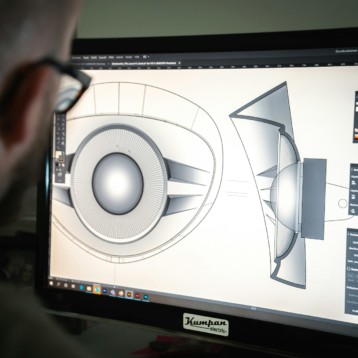|
The new development offers an alternative method to miniaturize memory elements while increasing the number and capacity of memory and functional logic elements in computers. Up to now, one of the major barriers for memory developers was the ever-increasing manufacturing costs. Since poplar trees are abundant, this unprecedented development might provide improved technology—in terms of cost-benefit—for future computers.
Professor Danny Porath and his graduate student Izhar Medalsy of the Institute of Chemistry at Hebrew University have reported this development in an article published in the journal Nature Nanotechnology. Professor Oded Shoseyhov developed the genetically engineered poplar-derived protein complexes in his laboratory of within the framework of the doctoral thesis of Dr. Arnon Heyman at the Robert H. Smith Faculty of Agriculture, Food, and Environment of Hebrew University
In the project, the team genetically engineered poplar protein to enable its hybridization with a silicon nanoparticle. In this process, the scientists attached the nanoparticles to the inner pore of a stable, ring-like protein, the poplar derivative, and then they arrange these hybrids in a large network, or array of very close molecular memory elements.
Apparently, the practical result of having a stable computing activity in a tiny memory element can greatly increase existing memory capacity while significantly reducing the space required to carry out this volume of activity. Therefore, manufacturers could utilize this technology to minimize costs and physical size of storage devices without lowering capacity.
Professor Porath and his student, Medalsy, are hopeful that this new technology will prove to be a commercially successful alternative to current computer systems, creating devices with enhanced storage space.
TFOT has covered the use of protein in a different kind of memory – the human memory – researched by at the University of California at Santa Barbara, where a team of scientists uncovered an unknown process which encodes memory.
For more information about the usage of poplar trees to increase the density of computer memory see the Hebrew University’s press release.











